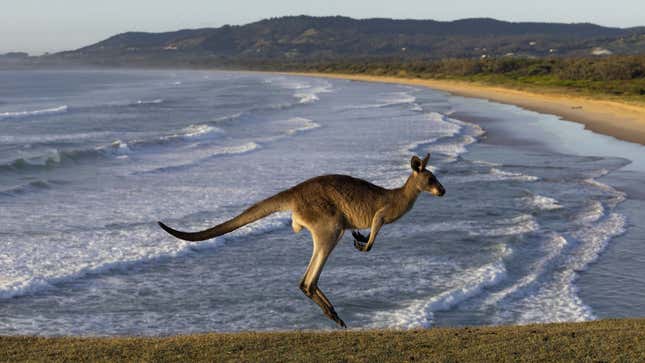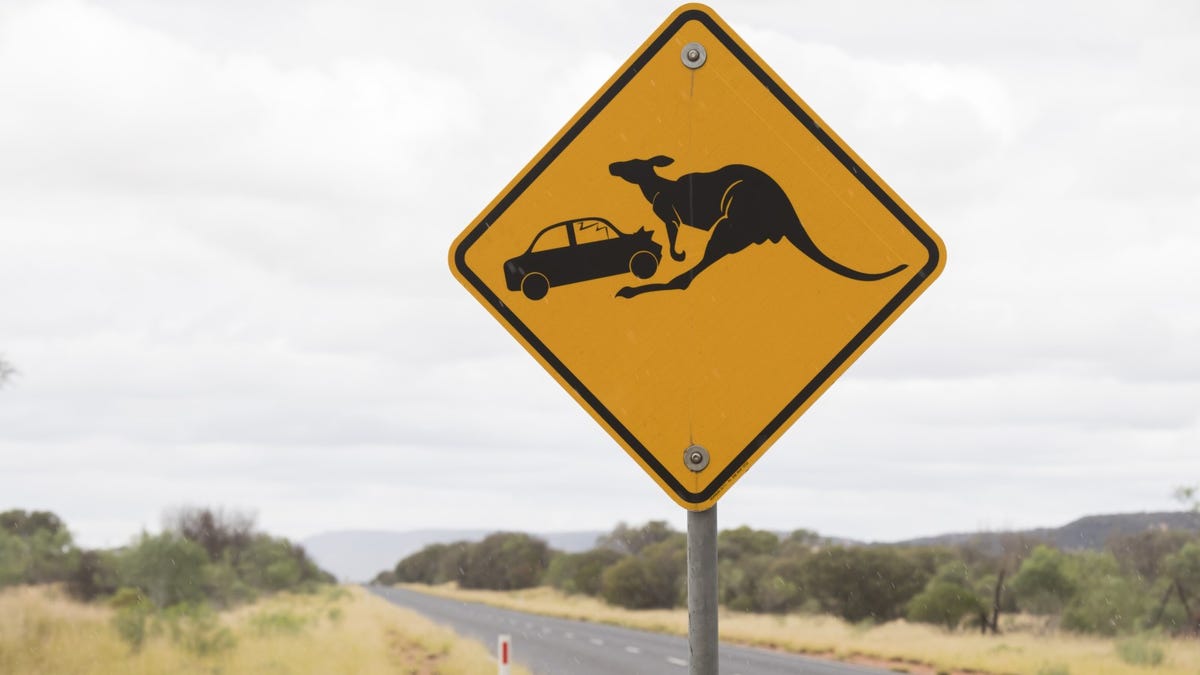Car makers have come up with some mighty clever tech to make driving safer, like blind spot detection systems, lane-keeping tech and even sensors to let you know if you’ve left a passenger on the back seat. One thing cars aren’t too good at detecting, however, is kangaroos. In fact, the Australian marsupials are so hard to predict that automakers have given up trying to develop tech that could reduce crashes with ’roos.
Car companies including Volvo and, before its demise, Saab were previously working to develop kangaroo crash prevention tech, reports Ars Technica. However, experts found that the animals were far too “erratic” for the tech to be able to predict. As the site reports:
That’s because kangaroos are completely irrational animals, said David Pickett, Volvo Australia’s technical lead. In 2015, Pickett was a part of the Volvo team that tried to develop the world’s first kangaroo detection and avoidance system by a major car manufacturer.
Pickett and a research team from Volvo headquarters in Sweden traveled to Tidbinbilla Nature Reserve near Canberra, Australia, where they spent a week driving up and down winding roads, watching their detection system attempt to account for kangaroos.
Instead of using the traditional ground detection systems that are used to spot other hazards in the road, the team quickly found this wouldn’t work for kangaroos thanks to their hoppy nature. Because of this, the systems can lose sight of the ‘roo when it jumps, which is particularly common due to the haphazard way they bounce around to confuse predators.
Because of this, Volvo was forced to admit defeat in 2017 and announce that it’s self-driving cars wouldn’t be able to predict kangaroos when they jump into the road. Now, the act of preventing kangaroo/car collisions has fallen on rural Australian communities, who have come up with their own ways of keeping ‘roos off the roads.
Communities have turned to things like lasers and bright lights to scare kangaroos away from the road in order to try and prevent crashes. As Ars Technica explains:
Virtual fencing (as in lights activated by headlights to keep animals away from roads) has been used to deter deer in the United States and parts of Europe for almost 20 years. In 2014, Wildlife Safety Solutions tested the idea in Tasmania to see if it kept devils off the road.
Eurobodalla Shire, a community in eastern Australia about 200 miles from Sydney, decided to see if it would also work for larger marsupials. Courtney Fink, the Eurobodalla Shire Council’s natural resource supervisor, spearheaded the project’s installation in the fall of 2022 after identifying the community’s worst collision hotspots for kangaroos and wallabies.
The installation saw the council erect massive green fence posts every 82-feet along a half-mile stretch of road. At the top of each post is a device catchily called the DD430, which features sensors to detect oncoming vehicles, bright lights that shine away from the road and a speaker to emit a high-pitched sound to scare away animals.

According to the team behind it, the trial is working and collisions with animals along the stretch of highway have dropped. Before the system was installed, crews were attending five marsupial collisions a week; now they’ve reported just five in the program’s first eight months, reports Ars.
Experts hope the program can now roll out across more of Australia’s 9,000 miles of highway. However, with a price tag of around AU$11,000 ($7,277 at today’s rate) per mile, the program might have its work cut out proving its worth.
That might not be too much of a big task, though, as Ars reports that in 2018 alone there were 12,000 insurance claims involving collisions with kangaroos or wallabies, with an average cost of more than AU$5,000, which is about $3,300 in the Land of the Free.

